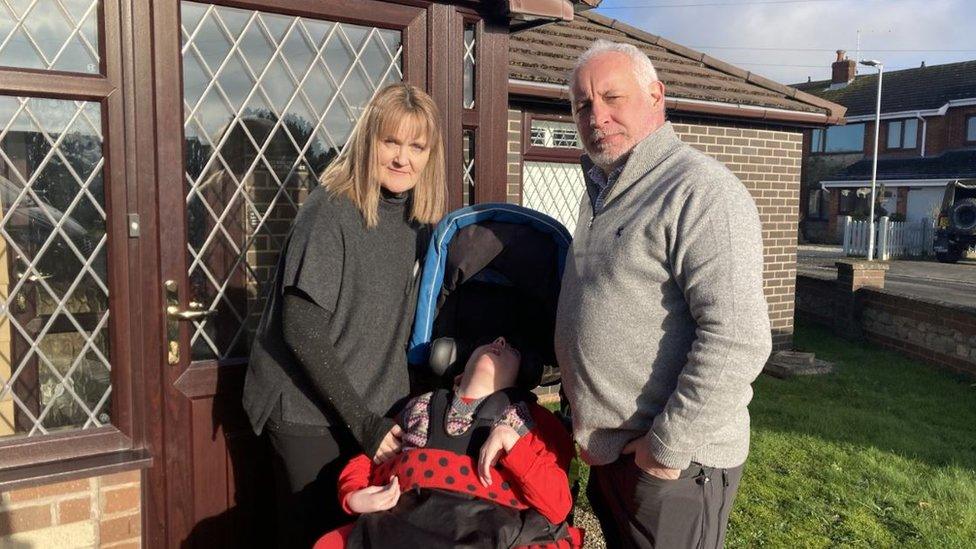Anger over pupil transport cuts

Sian said her son Tom thought his driver and chaperone did not want to take him to school
- Published
A mother whose son with Down's syndrome has been forced to stay at home due to school transport cuts said the most vulnerable in society were "paying the price for the mistakes of others".
Birmingham City Council is making more than £300m savings over two years after effectively declaring itself bankrupt a year ago.
As part of that, it has withdrawn free home-to-school transport for pupils over 16 who have special educational needs and disabilities (SEND).
Sian, from Harborne, said her 16-year-old son Tom should have started back at school, but was stuck at home awaiting the result of an appeal after losing access to a minibus.
"This is very distressing for us all - especially Tom who can't understand why he can't go to school. He thinks his driver and chaperone don’t want to take him which breaks my heart," she said.
Initially, the Labour-run council offered the family a bus pass, but given Tom's vulnerability, his mother said this was not an option as he could not travel alone.
It then offered a personal budget of 45p per mile, minus the first three miles of each journey, if the family also paid a £1,030 annual contribution.
However, in the past the council had also paid for a chaperone since both Mrs Moxon and her husband work full-time and are unable to transport Tom to and from school without help.
By law, local authorities have to provide home-to-school transport for eligible children aged five to 16 to take them to their nearest qualifying school.
While there is no legal duty on councils covering pupils over 16, many have continued to fund school transport for that age group.

Angela Palmer said she had been left with no way of getting her son Jake to school
Sian is one of several parents of SEND children to speak out about the impact of transport funding cuts.
Angela's 16-year-old son Jake is in a similar position. He has lost the minibus that has taken him to school for the past two years.
Jake attends Oscott Manor, a specialist autistic school in Erdington, nine miles (14 km) from his home in Yardley Wood.
Angela, a single parent on a low income, has also been offered the same 45p per mile transport budget.
She does not drive and for each £20 taxi journey for Jake to get to school, she would pay more than £17. It is a financial arrangement she simply cannot afford.
"I'm angry, I'm upset," she said. "They're not providing him an education."
One family from Northfield said they were having to dip into their retirement fund to ensure their son Alex could keep going to school.
Alex, 17, is also autistic and has attention deficit hyperactivity disorder among other complex needs.
He attends Queen Alexandra College in Harborne, about four miles from his home and has received a council-funded taxi since he was eight years old. Not any more.
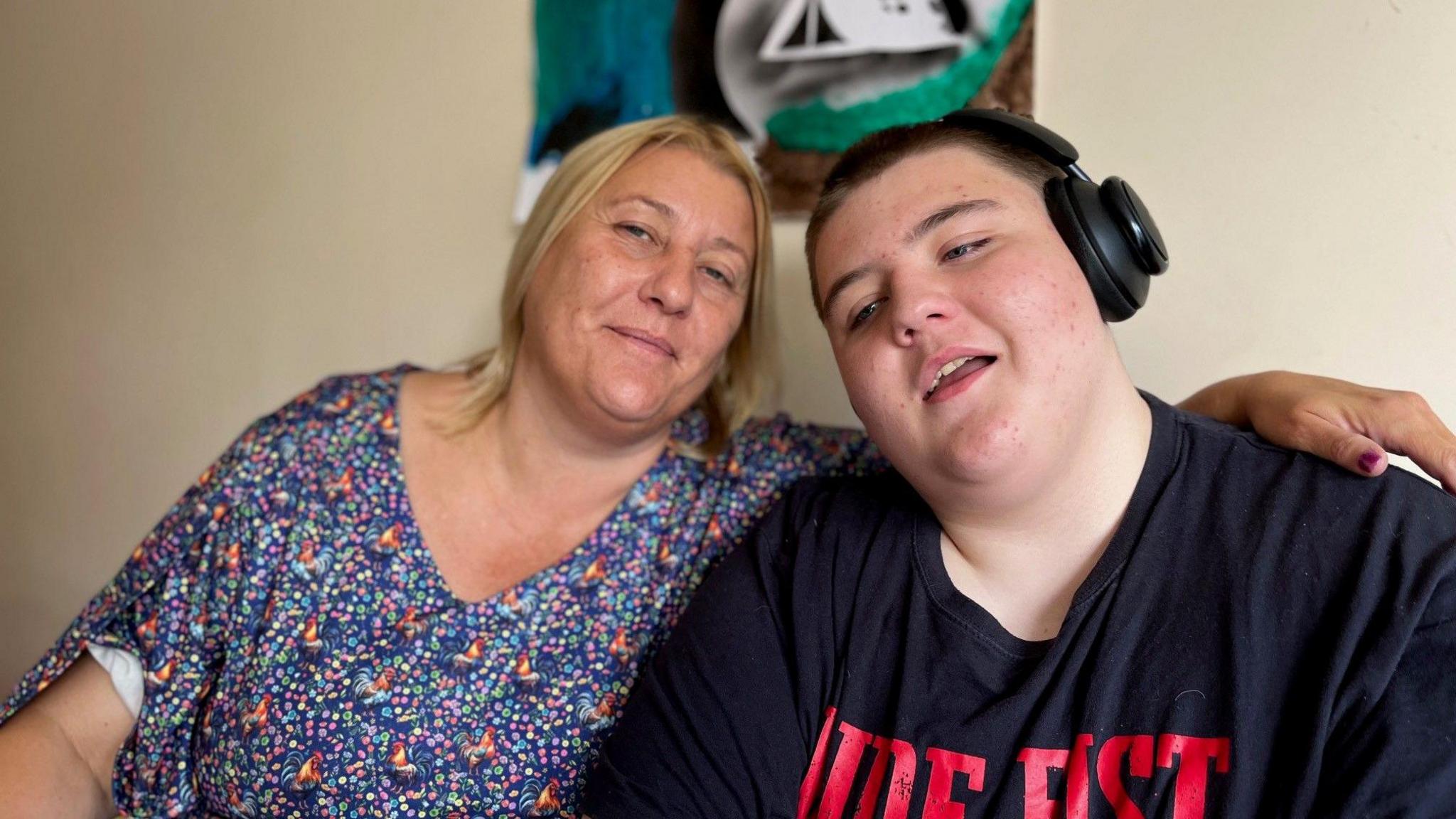
Sylvia is using savings to pay for taxis to get her son Alex to school
His mother Sylvia said: "Why is it always the vulnerable, the people who can't fight back? It's terrifying."
Alex is also worried, and said he feared having an anxiety attack if he had to use a public bus.
Fellow parent Keely said she understood the need to make cuts, but it had to be done "fairly" and her own experience of dealing with the council had been like "talking to a brick wall".
"You're expecting children who've used this service for six years to suddenly have it taken away," she said.
Birmingham City Council said it had carried out an "extensive consultation process" and parents had been made aware of the changes.
"The council has maintained a level of support that enables families to make their own arrangements and has been providing additional support to our most vulnerable students and families," a spokesperson said.
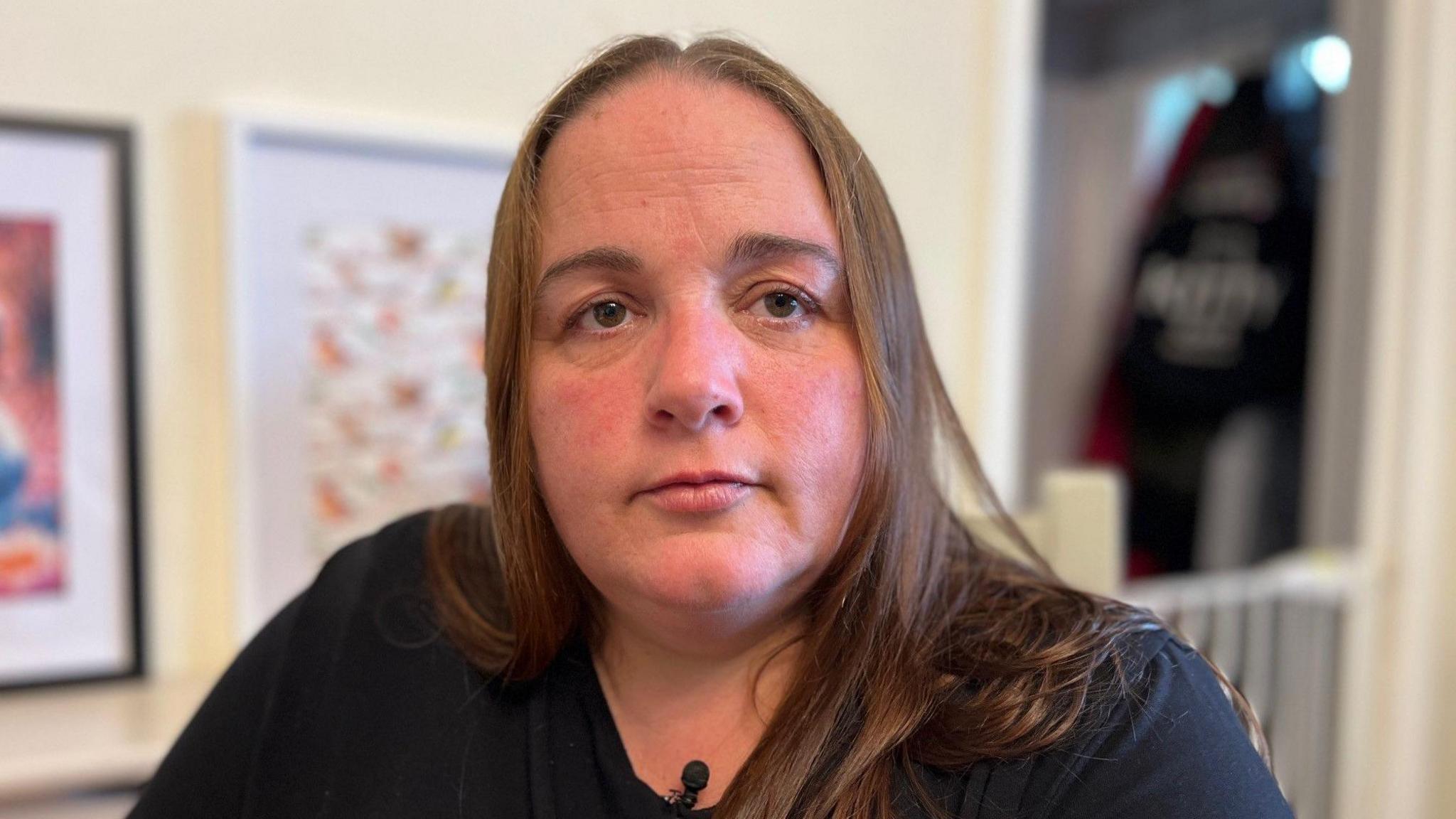
Angela said the transport decision meant she had 'lost a lifeline'
The local authority said in July it had to make a further £80m in savings in the next financial year, on top of the £300m over two years already announced.
The Children's, Young People and Families department needs to find £51.5m savings in the next financial year.
Angela is part of a Facebook group with 600 other people, detailing the plight of dozens of families appealing against the removal of their transport assistance.
She is calling on Birmingham City Council to reverse its policy, saying it it is a "lifeline" for Jake and other children.
"Without it, I can't see a future for him," she said.
Last month, another parent, Sabiha Aziz, took legal action to challenge the decision to remove her son Adam's transport. Following a review of her case, Birmingham City Council reinstated funding for a daily minibus to take him to school.
Get in touch
Tell us which stories we should cover in Birmingham and the Black Country
Follow BBC Birmingham on BBC Sounds, Facebook, external, X, external and Instagram, external.
Related topics
- Published11 August 2024
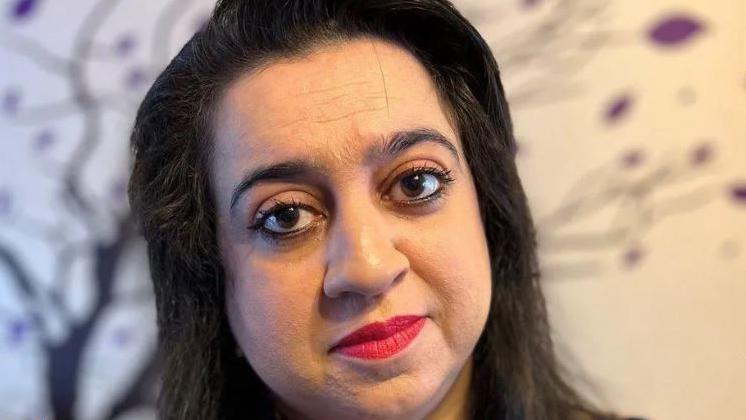
- Published11 May 2024

- Published11 January 2024
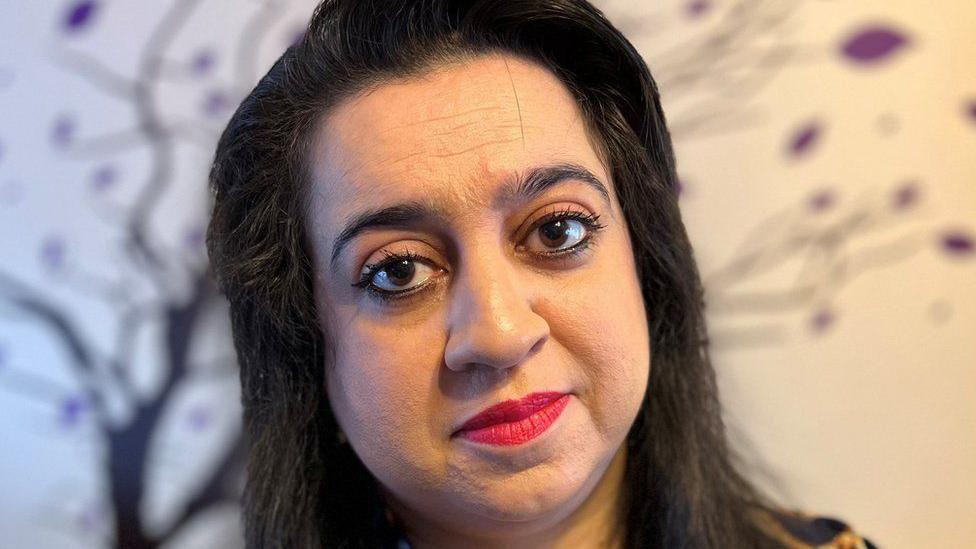
- Published24 January 2024
